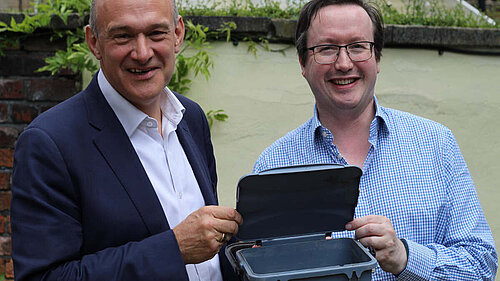Lib Dems look ahead to city-wide food recycling

Sheffield Liberal Democrats have welcomed the news that the City's food waste recycling trial has completed, and look forward to the introduction of food recycling across the city after years of campaigning.
The trial was approved by the Waste and Street Scene committee, and ran for 12 weeks in Meersbrook, Woodseats, Burncross, Ecclesfield, Arbourthorne and Darnall, where residents were given caddies to recycle kitchen scraps.
Initial figures suggest that over 100 tonnes of food waste were recycled in total.
The Council will be legally required to provide food waste recycling city wide in the coming years, following the passage of the Environment Act 2021. The Council will also be required to expand the types of plastic it can recycle.
Councillor Joe Otten, Chair of the Waste and Street Scene committee, said "This scheme's completion is a great step towards bringing Sheffield up to par with other cities on recycling - over 50% of Councils around the country already provide it, and it’s time we joined them.
The Lib Dems have been campaigning for this type of scheme for years, and it's good to see it finally gathering steam. It provides clean electricity and high-quality fertiliser, and it's a crucial step towards tackling the climate emergency and transitioning to a circular economy.
The full report on the lessons learned and options for city-wide service will come to Committee in March, and I'll be pushing to have the programme rolled out city-wide before the end of the year.
We do need to make sure we bring everyone with us - the initial numbers are suggesting the scheme was used significantly more in higher income neighbourhoods. We need take up across all neighbourhoods for this to be successful, and we’re carefully considering how to achieve that."
The collected food scraps are processed in 'anaerobic digestion' plants. Food is broken down by microorganisms, which releases Methane and a nutrient rich 'digestate'. The digestate is used as a fertiliser for fields, and the resulting methane is turned into biogas, which generates electricity.
Capturing methane from food is extremely important for tackling climate change, as over a 20 year lifespan it contributes over 80 times more to climate change than carbon dioxide.
